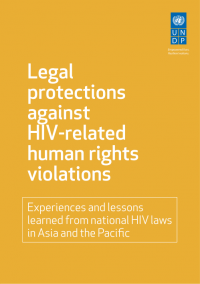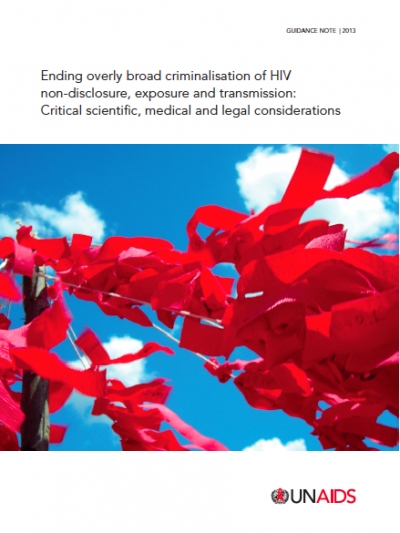 In its recently released follow-up study to the report on the Global Commission on HIV and the Law: Risks, Rights and Health (July 2012), the UNDP finds that HIV-related anti-discrimination laws and their enforcement are failing to provide adequate human rights protection for people living with HIV (PLHIV) in the Asia-Pacific region. The report, titled Legal protections against HIV-related human rights violations: Experiences and lessons learned from national HIV laws in Asia and the Pacific, surveys laws in the Asia-Pacific region meant to provide legal protections for people living with HIV/AIDS and, the gap between these laws and their enforcement. According to Shiba Phurailatpam, Regional Coordinator of the Asia-Pacific Network of People Living with HIV and AIDS (APN+), who is quoted in the press release: “The report’s findings demonstrate the urgent need for practical measures to be taken to ensure people who experience violations can access the legal system to claim their rights.” He urged governments and donors in the region “to help strengthen access to justice and legal empowerment among people living with HIV.”
In its recently released follow-up study to the report on the Global Commission on HIV and the Law: Risks, Rights and Health (July 2012), the UNDP finds that HIV-related anti-discrimination laws and their enforcement are failing to provide adequate human rights protection for people living with HIV (PLHIV) in the Asia-Pacific region. The report, titled Legal protections against HIV-related human rights violations: Experiences and lessons learned from national HIV laws in Asia and the Pacific, surveys laws in the Asia-Pacific region meant to provide legal protections for people living with HIV/AIDS and, the gap between these laws and their enforcement. According to Shiba Phurailatpam, Regional Coordinator of the Asia-Pacific Network of People Living with HIV and AIDS (APN+), who is quoted in the press release: “The report’s findings demonstrate the urgent need for practical measures to be taken to ensure people who experience violations can access the legal system to claim their rights.” He urged governments and donors in the region “to help strengthen access to justice and legal empowerment among people living with HIV.”
The UNDP’s recommendations emphasize the need for legal reform and capacity development to expand access to justice for PLHIV and other key populations, as well as greater investment from international stakeholders. The UNDP urges donors such as the Global Fund to “support government and civil society programming on HIV-related human rights, including access to justice programmes.”
Asia Catalyst’s Advocacy Program Director, Shen Tingting, recently joined the Developing Country NGO Delegation to the Global Fund Board; her involvement will provide a direct channel for advocacy on these issues with the Global Fund. If you have suggestions or ideas, feel free to contact her at info@asiacatalyst.org. For more information on the UNDP’s findings and the full report click on the links below.
Click here to for the UNDP press release.
Click here for the full report: Legal protections against HIV-related human rights violations: Experiences and lessons learned from national HIV laws in Asia and the Pacific.






